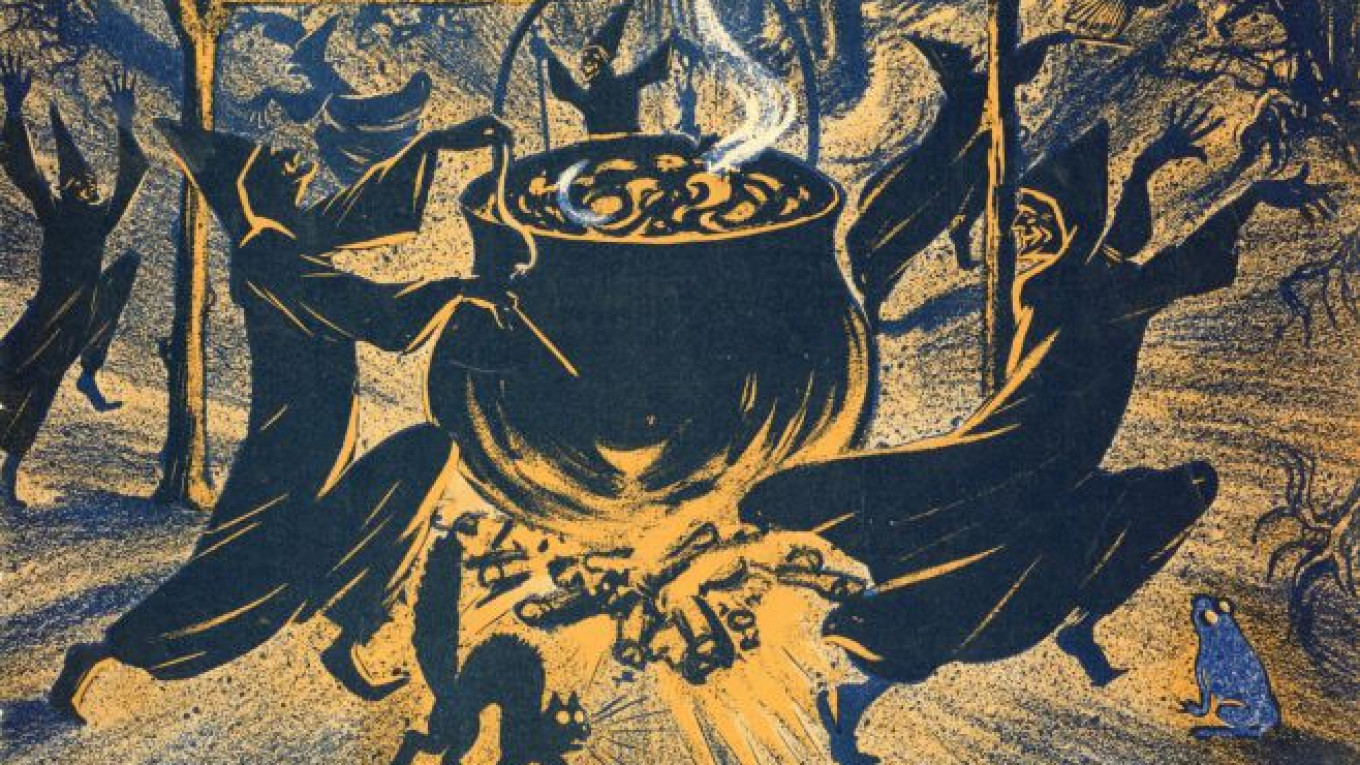Заколдо́ванный круг: vicious circle
In Russian, and therefore in Russia, a lot of people, things and actions are charming. When the charm is pleasant — a song, a cute kid, a puppy — speakers often use the verb pair очаровывать / очаровать (to charm) and related words. Какое очарование! (How charming!) But not all charms are lucky, and casting spells can be serious business.
First of all, spells are cast not just by voices and hands, but by other body parts usually not associated with magic. For example — teeth. The unusual expression зубы заговаривать (something like “to cast tooth spells”) comes from the time when healers treated patients by whispering or chanting incantations over them.
Today the expression is usually used ironically to mean sweet-talking someone into doing something, like the guy in the electronics store who convinces you to buy a television that is twice the size and three times the cost of what you wanted. Он так заговорил мне зубы, что я полностью забыл о семейном бюджете. (He sweet-talked me so much that I completely forgot about our family budget.)
Of course, voices also enchant, often with the verb завораживать (to cast a spell). Его голос, интонации завораживают. (His voice and intonation are spellbinding.) Eyes cast spells, too: Помнила, как завораживали его глаза. (I remember how his eyes caught me in their spell.)
Eyes also have the power to hypnotize. Забудь обо всём, — поёт она, гипнотизируя взглядом Алексея. (“Forget about everything,” she sings, hypnotizing Alexei with her gaze.)
But other facial features have the same power: Его строгое лицо и властный голос гипнотизировали её. (She was hypnotized by his stern face and powerful voice.) In general, this kind of power over people is not a good thing: Он произносил слова, имевшие гипнотическую власть над людьми. (He spoke words that had a hypnotic power over people.)
Even stronger is the spellbinding power of заколдовывать (to enchant, bewitch). Sometimes the enchantment is marvelous, if dangerous, like заколдованный лес (enchanted forest). Or really marvelous, if perhaps suspicious: Резьбе по дереву Катя не училась — просто взяла в руки инструменты и принялась за дело, словно заколдовал её кто. (Katya didn’t learn how to carve wood; she simply picked up the tools and started to do it as if someone had bewitched her.)
But most of the time заколдовывать means bad magic: Город, словно заколдованный какой-то злой силой. (It was as if the city was under the spell of some evil power.) Он был заколдован холодным волшебством матери. (He was under the spell of his mother’s cold witchcraft.)
In Russian, circles aren’t vicious, they’re enchanted — which makes them even harder to break out of. Как преодолеть этот порочный заколдованный круг в России? (How can we break out of this evil vicious circle in Russia?)
An even stronger form of magic is that of the verb пленять (to captivate), which you might recognize from related words like плен (captivity) or пленник (captive). Russians seem to like this kind of captivity. It can be the magic of love: Всё в ней поражало и пленяло меня. (Everything about her fascinated and captivated me.) Or beauty: Его пленяла красота голоса певицы. (He was held in thrall by the beauty of the singer’s voice.) Or the power of the vine: Один глоток вина пленял меня. (One sip of wine and I was in thrall.)
Now that’s the kind of enchanted circle you want to stay in.
Michele A. Berdy, a Moscow-based translator and interpreter, is author of "The Russian Word's Worth" (Glas), a collection of her columns.
A Message from The Moscow Times:
Dear readers,
We are facing unprecedented challenges. Russia's Prosecutor General's Office has designated The Moscow Times as an "undesirable" organization, criminalizing our work and putting our staff at risk of prosecution. This follows our earlier unjust labeling as a "foreign agent."
These actions are direct attempts to silence independent journalism in Russia. The authorities claim our work "discredits the decisions of the Russian leadership." We see things differently: we strive to provide accurate, unbiased reporting on Russia.
We, the journalists of The Moscow Times, refuse to be silenced. But to continue our work, we need your help.
Your support, no matter how small, makes a world of difference. If you can, please support us monthly starting from just $2. It's quick to set up, and every contribution makes a significant impact.
By supporting The Moscow Times, you're defending open, independent journalism in the face of repression. Thank you for standing with us.
Remind me later.








